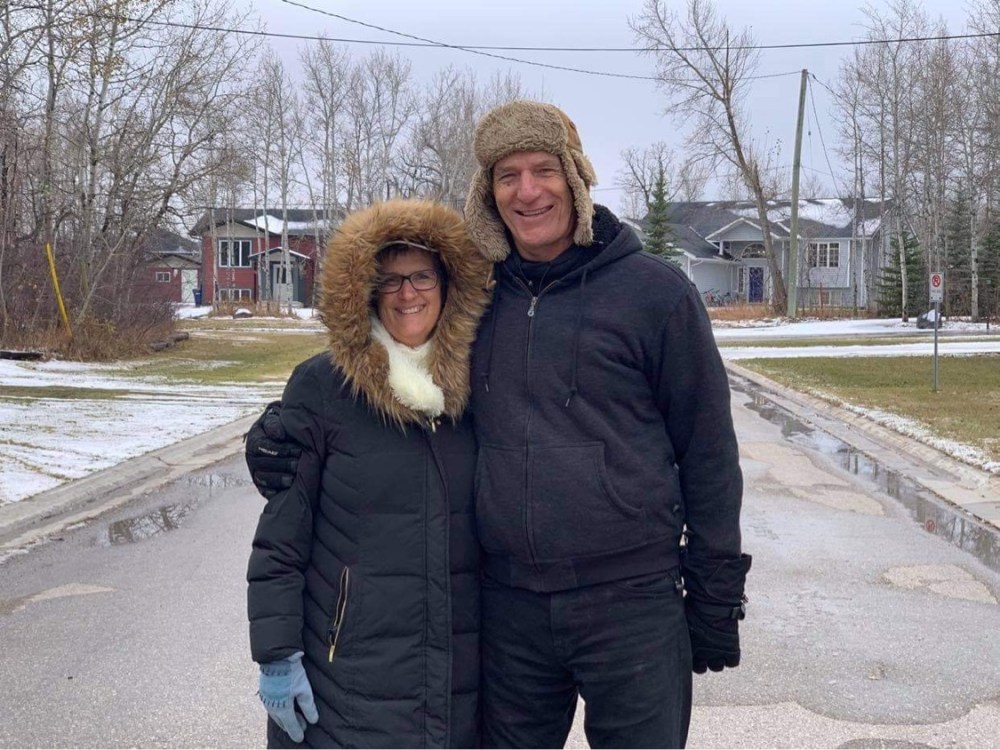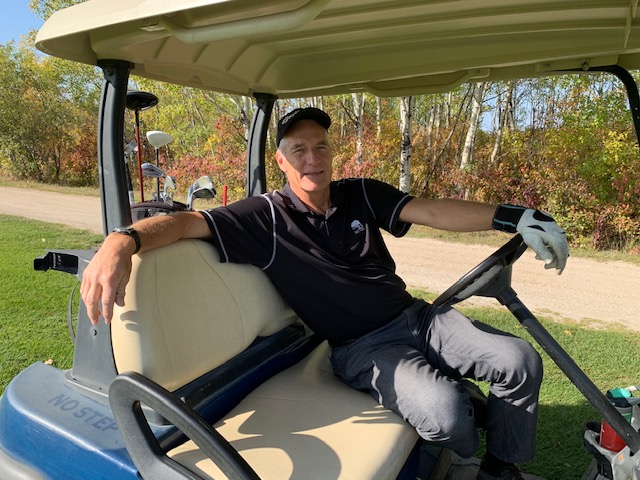Loved, safe and secure while battling Alzheimer’s
Advertisement
Hey there, time traveller!
This article was published 01/02/2021 (1587 days ago), so information in it may no longer be current.
Linda Wiebe knows all too well the impact of Alzheimer’s disease. Her husband Herb was officially diagnosed September of 2019, after several years of showing a decline in cognitive ability.
“You’re losing your best friend,” Linda said. “You’re losing them little by little.”
While the reality of living with a spouse with Alzheimer’s includes a timeline of declining abilities, that’s not the focus for Linda. “In May we’ll be married 44 years,” she said. “We’ve got fantastic memories. We’ve had a wonderful life and I want him to feel loved and safe and secure, and that to me is the most important thing.”

Herb has always been a busy person. He was a floor installer for Steinbach flooring after doing missions. Linda works at Steinbach Credit Union. The couple has two married sons living outside the province. Over the years they’ve moved 23 times, living places such as Texas, California, Saskatchewan, Costa Rica and Colombia.
January is Alzheimer’s Awareness Month, and Linda shared part of her story in a campaign hosted by the Alzheimer Society to reduce the stigma attached to the disease. The society says that one in four Canadians say they would feel ashamed or embarrassed if they had dementia.
“By providing a platform for Manitobans to share their stories, we can cultivate empathy and compassion,” Wendy Schettler, CEO of Alzheimer Society of Manitoba said. “Too often, negative feelings, attitudes and stereotypes surrounding dementia dissuade people from seeking help and discourage others from lending their support.”
For Linda and Herb, the journey began long before the official diagnosis.
Linda said it started five years ago when she noticed small changes in Herb, including double booking himself or making more mistakes at work.
Thinking he was simply over tired, he reduced his weekly workdays to four and then to three. “I knew things were off because he’d say one thing and do another, not remember that he made promises to people and wouldn’t keep them and that is so out of character for him,” she said.
Herb thrived on a busy schedule and spent time as a pastor, and missionary, including time with Inner City Youth Alive helping with a work-skills program.
“His heart and passion were always people first, so to see things like that start to change was unusual,” Linda said.
Early on, doctors told the couple he did not fit on the dementia spectrum, although he had evidence of cognitive impairment. A year of testing looked at many possibilities including ruling out brain tumours. When the official diagnosis of Alzheimer’s disease came in September of 2019, the couple finally knew what they were dealing with. “At that point I would say it was a relief,” Linda said.
Herb retired at the beginning of 2020, and did quite well at home, but Linda said COVID-19 restrictions would prove to be the next challenge.
“In March when COVID hit, he had a really hard time understanding the restrictions and I felt like he really declined at that point because he was constantly being told you can’t do this, you can’t do that, you can’t go there…”
By August it was clear that he could no longer be left alone.
Linda and Herb chose self-family managed care, which allowed them to choose caregivers for week-days when Linda works. She selected men who shared interests with Herb, including golfing and ice fishing.
“I want my husband to have quality of life,” she said. “So now he jokingly tells people he has a chauffeur and a chef.”
The journey with dementia is mostly a story of abilities and memories fading, but there are moments to remember as well. Linda speaks glowingly of what she calls her “Christmas miracle” which took place on Dec. 26.
“Every now and then a person with Alzheimer’s or dementia has a moment or a window of real clarity,” she explained. “He talked non-stop for over an hour and told me that he knew what was happening to him, that he thought he would have way more time, that it was going very fast. He talked about what his wishes were for himself, for me and our sons. He answered questions that I had never verbalized to anybody.”

That window has never reappeared in the same way, but Linda said there are lighter moments.
“We laugh a lot, we find the humour in some of the things that happen,” she said. “We talk about gratitudes every day, we don’t try to feel sorry for ourselves. We talk about all the adventures we had in our lives.”
Linda said she had asked Herb if he was happy they had so many adventures throughout their marriage, instead of waiting for retirement. He couldn’t recall those adventures so she shared with him the time he went white water rafting in Costa Rica, or his time on a river in Colombia in a hollowed out log.
There will be tough days in the future for the couple. With the wait list for personal care homes at about two years in Steinbach, Herb has been paneled. The decision, made by the doctor, was not an easy one.
“It’s just an awful feeling when you do start to make plans for the future that (Herb and I) aren’t going to be together,” she said.
There’s been many tough decisions and life changes made up to this point.
“It seems like every time I get to the stage of hiring people or making a change the strength is just there, and I think it’s the prayers of a lot of people,” she said.
She had advice for others who may be unsure of how to respond to people with dementia.
“Don’t be scared of it,” she said. “The person is still there, and even though there’s going to be times that a situation might be awkward, they need interaction. Don’t shy away from someone because they have the illness.”
She also encourages people to access resources and support groups, giving credit to the Alzheimer’s Society, support groups, caregivers, friends and family for helping along the way.
“We are thankful for all the encouragement and support along this journey,” she said.
